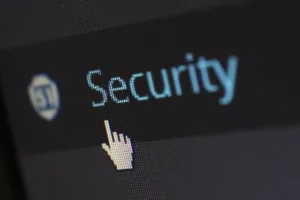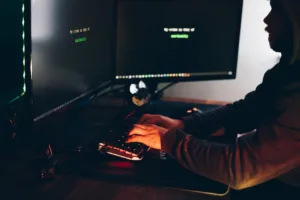
A significant security vulnerability, tracked as CVE-2025-59489, has been identified within the Unity game engine, posing a substantial risk to millions of users across multiple platforms. The flaw, which could lead to arbitrary code execution on Android and privilege escalation on Windows, has prompted a coordinated response from Unity Technologies, major digital storefronts like Steam, and security vendors including Microsoft1, 2. This vulnerability has been present in Unity versions since 2017.1, meaning it has been dormant in the engine for nearly a decade, affecting a vast number of games and applications built during that period2, 10.
Technical Breakdown of CVE-2025-59489
CVE-2025-59489 is a security flaw within Unity’s Runtime code that enables an unsafe file loading and local file inclusion attack2, 5. This mechanism could allow an attacker to execute arbitrary code on a victim’s device or access confidential information1. The vulnerability was responsibly disclosed by security researcher RyotaK, and Unity has assigned it a CVSS score of 8.4, classifying it as high severity2, 10. The primary attack vector involves the manipulation of command-line parameters, which can be leveraged to load and execute malicious files from the local system. The scope of affected software is extensive, encompassing any game or application built with Unity versions 2017.1 and later for the affected platforms, which include Android, Windows, Linux, and macOS. Notably, iOS, Xbox, PlayStation, and Nintendo Switch consoles are not affected by this specific issue1, 8, 10.
Platform-Specific Impact and Mitigations
The impact of CVE-2025-59489 varies by platform, necessitating different defensive strategies. On Android, the risk is particularly acute due to the potential for interaction with other sensitive applications, such as cryptocurrency wallets. The malicious code could perform screen scraping to steal seed phrases, capture user input via keylogging, or deploy overlay attacks to harvest credentials9. For Windows systems, the vulnerability can be exploited to achieve privilege escalation, granting an attacker higher-level permissions on the compromised machine. Unity has indicated that the risk on Linux is “much lower,” and Meta Horizon OS devices have implemented specific mitigations to prevent exploitation10. The widespread use of Unity, which powers over 70% of top mobile games and popular titles like *Pokémon GO* and *Genshin Impact*, magnifies the potential impact of this vulnerability1, 5.
Industry and Vendor Response
The disclosure of CVE-2025-59489 triggered an immediate and large-scale response from across the technology industry. Unity Technologies has stated there is no evidence of any exploitation in the wild but has moved swiftly to provide remediation tools1, 2, 10. The company released patched updates for the Unity Editor for versions 2019.1 and later and, critically, a standalone “Unity Application Patcher” tool for developers who cannot immediately rebuild games built with older versions dating back to 2017.12, 7, 10. Valve updated the Steam Client to block games from launching if they contain the malicious command-line parameters associated with this exploit1, 7, 10. Microsoft warned that vulnerable apps should be temporarily uninstalled until an update is available and confirmed that Microsoft Defender can detect and block exploitation attempts1, 8, 10.
Major game studios have taken direct action to protect their users. Obsidian Entertainment, for instance, temporarily removed several titles, including *Grounded 2*, *Pentiment*, and the *Pillars of Eternity* series, from digital storefronts while they work on implementing the fix5, 6. Other games, such as *Among Us* and *Marvel Snap*, have already released updates to patch the vulnerability5. A key complication for developers is that those using tamper-proofing or anti-cheat solutions cannot use the binary patcher, as it would trigger their tamper protection; these developers must rebuild and redeploy their projects entirely10.
Security Implications and Remediation Guidance
For security professionals, this incident highlights the risks associated with widespread third-party software dependencies. The nearly decade-long presence of this flaw in a core engine underscores the challenge of securing complex software supply chains. The primary remediation for end-users is to ensure all games and applications, especially those built with Unity, are updated to their latest versions. System security software, such as Microsoft Defender, should be kept active and updated. On Android, users should avoid sideloading apps from unofficial sources, as this significantly increases the risk of encountering a maliciously crafted application designed to exploit this vulnerability9, 10.
For organizations and developers, the response involves immediate patch application. Developers must assess their game portfolios to identify all titles built with affected Unity versions and apply the relevant patch or rebuild. The table below summarizes the key actions for different stakeholders.
| Stakeholder | Recommended Action |
|---|---|
| End Users | Update all Unity-based games; enable automatic updates and antivirus; temporarily uninstall games if no patch is available. |
| Game Developers | Apply Unity Editor patches or use the Unity Application Patcher; rebuild if using anti-cheat; communicate with your user base. |
| Enterprise Security Teams | Inventory software for vulnerable Unity applications; enforce application whitelisting where possible; monitor for related IOCs. |
This vulnerability serves as a critical reminder of the persistent need for robust software composition analysis and proactive patch management strategies within enterprise environments. The coordinated response demonstrates effective industry-wide collaboration in mitigating a widespread threat before widespread exploitation could occur.
References
- “Android and Windows gamers worldwide potentially affected by bug in Unity game engine,” The Record, 2025.
- “Unity has found a security vulnerability that has sat dormant for almost a decade,” PC Gamer, 2025.
- “Unity Patches Android Game Vulnerability That Risked Crypto User…,” Yahoo/AT&T, 2025.
- “Unity Developers Rush to Update Games After Significant Vulnerability is Discovered,” Game Rant, 2025.
- “Surprise Unity Exploit Gets Pillars Of Eternity 2 And More Pulled From Steam,” Kotaku, 2025.
- “Notice for Unity Game Developers: CVE-2025-59489,” Steamworks, 2025.
- “Security Update: Unity Gaming Engine Editor Vulnerability,” Xbox Game Studios, 2025.
- “Unity Android flaw could drain gamers’ crypto wallets: How to protect yourself,” Cointelegraph, 2025.
- “Unity Platform Protection: Take Immediate Action to Protect Your Games and Apps – CVE Q&A,” Unity Discussions, 2025.





